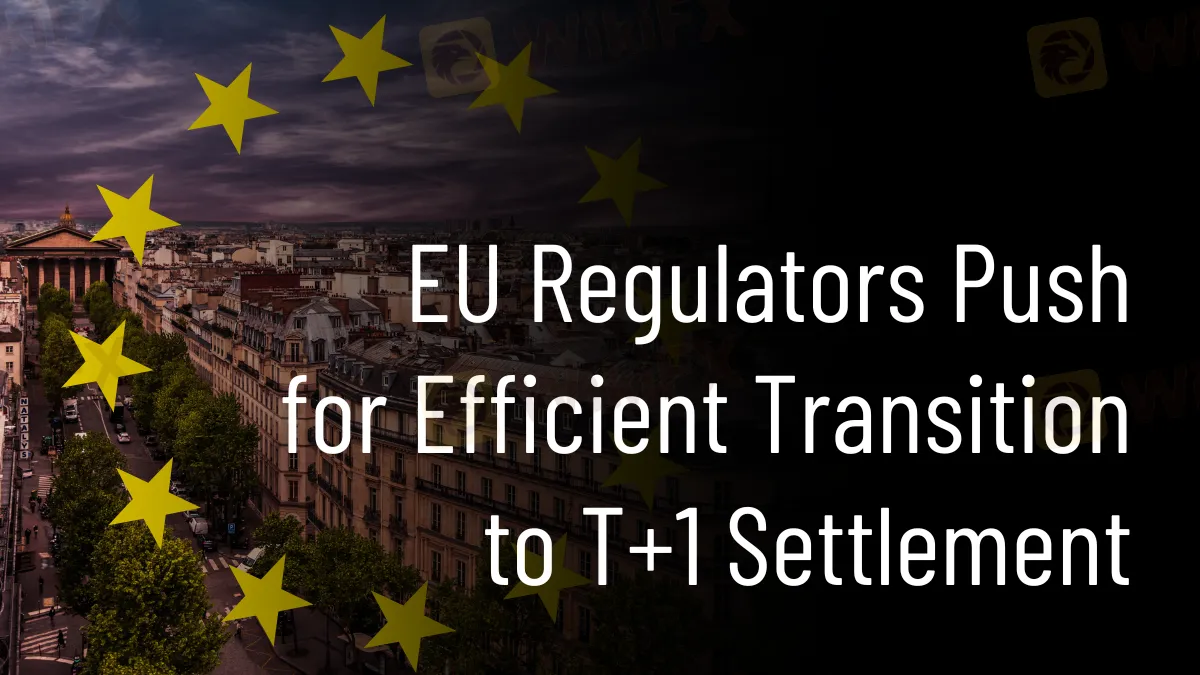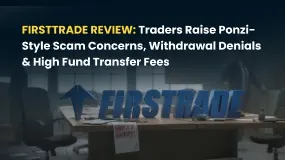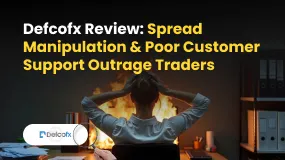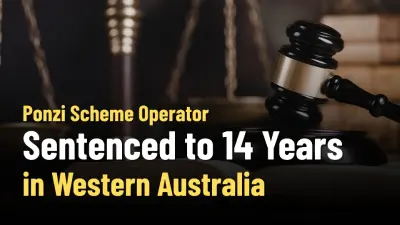简体中文
繁體中文
English
Pусский
日本語
ภาษาไทย
Tiếng Việt
Bahasa Indonesia
Español
हिन्दी
Filippiiniläinen
Français
Deutsch
Português
Türkçe
한국어
العربية
EU Regulators Push for Efficient Transition to T+1 Settlement
Abstract:The AMF and Banque de France call for a coordinated EU transition to a T+1 settlement cycle for securities, emphasizing cooperation and a phased approach.

French financial authorities, the Autorité des Marchés Financiers (AMF) and the Banque de France support a well-coordinated and efficient transition to a T+1 settlement cycle for securities transactions within the European Union. This proposal follows the European Commission's approval of the T+1 concept, representing a significant step toward quicker resolution. However, owing to the specific characteristics of EU markets, this transformation poses significant problems that need a properly calibrated timescale.
The AMF and the Banque de France underline the significance of tight collaboration, notably with the United Kingdom and Switzerland, due to the EU's considerable interdependence with these economies. The appeal for cooperation emphasizes the need for a coordinated strategy to achieve a smooth transition, as the US and Canada successfully implemented the T+1 settlement earlier this year.

To address these problems, the AMF and the Banque de France suggest a sensible two-phased strategy. In the first phase, under the current T+2 settlement cycle, all securities transactions should be verified and allocated before the end of the trading day. This first phase demands critical industry operational and technological advancements, such as data interchange standards and manual process automation. By completing these modifications, the industry will be better prepared for the upcoming move to T+1.
The second step entails shortening the settlement period to T+1, subject to receiving sufficient deal confirmations on the trade date. This stepwise strategy guarantees that the changeover is manageable and that the essential infrastructure is in place before adopting the T+1 settlement cycle completely.
Furthermore, the proposed T+1 framework should contain regulatory components backed by regulatory and economic incentives to help with the transition. These approaches address roadblocks and encourage stakeholders to implement the new system seamlessly.
This comprehensive AMF and Banque de France policy seeks to guarantee a seamless and efficient transition to the T+1 settlement cycle. This program aims to improve market infrastructure and increase investor confidence by ensuring European financial markets' stability, efficiency, and competitiveness.
About the AMF
The Autorité des Marchés Financiers (AMF) is an independent governmental institution safeguarding financial assets. It guarantees that investors obtain enough information and monitors the orderly operation of markets.
About Banque de France
The Banque de France, a Eurosystem member, is an autonomous agency tasked with monetary policy, financial stability, and economic services. It contributes to eurozone monetary policy, regulates banks and insurance firms, and provides various economic services to businesses and consumers.

Disclaimer:
The views in this article only represent the author's personal views, and do not constitute investment advice on this platform. This platform does not guarantee the accuracy, completeness and timeliness of the information in the article, and will not be liable for any loss caused by the use of or reliance on the information in the article.
Read more

Firsttrade Review: Traders Raise Ponzi-Style Scam Concerns, Withdrawal Denials & More Issues
Have you lost all your capital while trading via Firsttrade? Does the US-based forex broker disallow you from withdrawing funds? Do you have to pay massive fees when transferring funds? Does your trade get affected because of frequent malfunction in the trading app? These have been haunting many traders at Firsttrade. Consequently, many of them have raised complaints online. In this Firsttrade review, we have shared such complaints. Keep reading to know about them.

Defcofx Review: Spread Manipulation & Poor Customer Support Outrage Traders
Does the poor customer support service leave you stunned when trading via Defcofx? Do you receive blunt, negative responses from the support team on several trading queries? Does the Saint Lucia-based forex broker pile on the losses for you by manipulating forex spread charges? In this Defcofx review, we have shared some complaints made against the broker. This will further answer your question: Is Defcofx real or fake?

Ponzi Scheme Operator Sentenced to 14 Years in Western Australia
Chris Marco, a Ponzi scheme operator, was sentenced to 14 years for a $34 million investment fraud in Western Australia. Read about the case and its impact.

How to Add and Take Out Money from Amillex Broker: A Complete Guide
Good money management is the foundation of successful trading. Learning how to make an Amillex Broker deposit and withdrawal is your first step toward trading with confidence. We know that for any trader, moving money must be safe, fast, and simple. This guide gives you a complete, step-by-step walkthrough for all amillex broker funding activities, so you can manage your account with total clarity. The whole process, from your first deposit to taking out profits, is made to be simple. You start by logging into your secure client area, picking a payment method that works for you, choosing the amount, and confirming the transaction. This guide will cover detailed deposit instructions, a full breakdown of withdrawal steps, a comparison of available payment methods, and a detailed look at the security measures protecting every transaction.
WikiFX Broker
Latest News
WikiFX Elites Club Committee Concludes Voting! Inaugural Lineup Officially Announced
Fake Trading Platforms Are Spreading Fast Across Asia | How Investors Are Being Tricked
eToro CopyTrader Expands to U.S. Investors
Is MH Markets Safe or a Scam? Regulation and Fund Security Explained
How to Add and Take Out Money from Amillex Broker: A Complete Guide
FCA warning: These Firms are on the list
Ponzi Scheme Operator Sentenced to 14 Years in Western Australia
Dubai VARA Warns Against Vesta Investments
Don’t Get Scammed: A Roundup of Common Online Fraud Tactics in Forex
T4Trade broker Review 2025: Is T4Trade Regulated?
Currency Calculator



